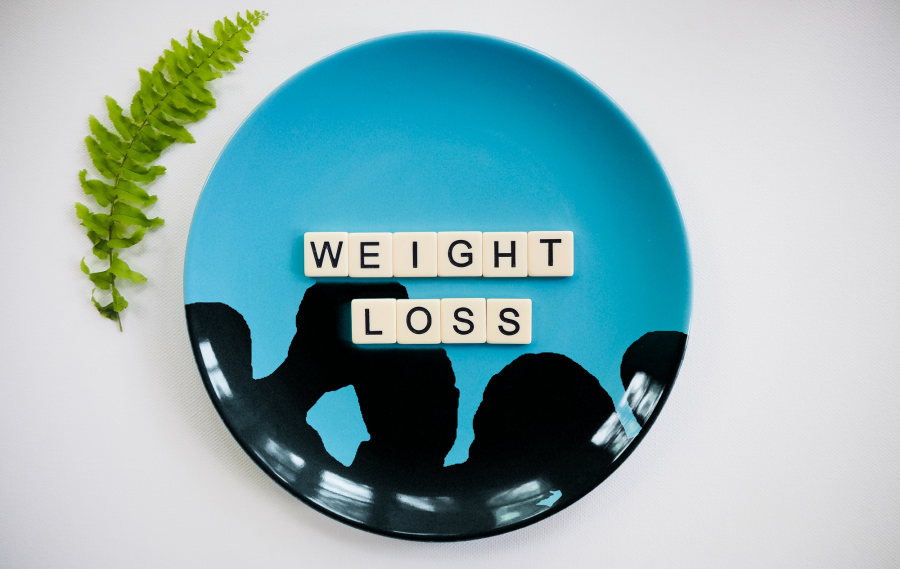Happy new year! As 2020 came to a close (thank goodness), you might be thinking about your goals and trying to set some resolutions for the year. You know: “new year, new me”. While your options are endless, I know a lot of people might be considering weight loss a goal. But there’s a few reasons why weight loss shouldn’t be your main goal for the new year. Weight loss isn’t a miracle health potion. Oftentimes when folks embark on their weight loss journeys, they are faced with some serious obstacles. Those who intentionally try to lose weight end up gaining it all back, and then some, to no fault of their own. Now you might be wanting to lose weight in order to improve your health, but weight loss doesn’t guarantee you good health. On the contrary, Intentional weight loss, weight-cycling and restriction come with health risks. Surprised? Here’s why you might be better off setting goals that don’t involve weight loss in 2021:
1- Diets are not sustainable:
We have an abundance of research that shows us diets only “work” in the first few months but fail long-term. Of course, weight-loss happens right away, and the weight comes off if you’re eating 1200 calories/day. But within 2-5 years, the weight comes back, sometimes even higher than baseline. Aside from the fact that diets often lead to weight gain, they cannot be sustainable without inflicting harm. One of the main reasons why diets fail is because they promote restriction. Physical as well as mental restriction often leads to feelings of loss of control, obsessive food thoughts, intense cravings and binge eating episodes. This is the body’s normal physiological response to deprivation, it’s not your fault that this is happening to you. Another reason why diets aren’t sustainable is because they’re not individualized. People have different socioeconomic means, education levels, access to healthcare, pre-existing conditions, physical and mental health histories, food preferences and relationships with food and body image, so it only makes sense that there’s no one uniform eating prescription that will work for everyone.

2- Dieting slows down your metabolism: diets mimic starvation.
What your body is programmed to do once it senses low fuel levels, is it goes into starvation mode by slowing down your metabolism, so you don’t burn through your energy stores fast. Your body is incredibly smart and is just trying to protect you, so don’t hate it because it doesn’t care about your flat stomach goals. If you don’t give your body enough calories to sustain its essential everyday functions like keeping your heart beating and your digestive tract working, your metabolism will slow down and won’t allow you to lose weight. This is why dieters seem to gain weight really fast the minute they eat a little more or exercise a bit less. Don’t believe me? Read this story that describes how “The Biggest Loser” contestants regain all the weight they lost on the show and more, once again to no fault of their own.
3- Dieting decreases Leptin levels:
Leptin is your fullness hormone which sends the signal to your body that you’re full after a meal, so you stop eating. What happens when you try to intentionally lose weight is your leptin levels drop. This means your hunger levels increase and it becomes more difficult for you to feel full. Again, this is a normal biological response that happens to the body when it goes on restrictive low-calorie diets and loses significant weight, making it impossible for you to stay on a starvation diet that’s harming your health.
4- Losing weight doesn’t mean you become healthy:
Calories are often demonized and considered as “bad”. However, what we sometimes forget because we live in a diet-centric society is that calories = energy. You can’t run on an empty tank. Your body needs fuel the same way your car needs gas. There are serious negative health consequences that happen when a person isn’t consuming enough calories or cutting out food groups like missing out on essential nutrients, vitamins and minerals that bodies needs to function normally. For instance, the immune system becomes weak, people lose muscle, develop cardiovascular issues like strokes or high blood pressure, and their mortality risk increases. A big example of this is yo-yo dieting in women which increases the risk of heart disease.
5- Chasing weight loss via dieting is not good for your mental health:
Dieting leads to disordered eating and eating disorders, which are dangerous and sometimes fatal mental illnesses. Dieting also creates withdrawal, feelings of shame and failure, poor self-esteem, anxiety and suicidal thoughts. The Minnesota Starvation Study is probably a perfect depiction of what dieting can do to your body both physically and mentally as it mimics modern society’s diets. That study was conducted during World War II with 36 healthy men who voluntarily starved themselves so researchers could learn about how to help people recover from starvation. For more on the study and psychology of hunger, click here.

By now, you probably understand why weight loss shouldn’t be your main goal for the new year, but you might be wondering what types of other goals you can pursue to improve your health. Well, here’s a few suggestions:
- Let go of the idea that there’s a better diet out there for you:
Rejecting the diet mentality is one of the 10 principles of Intuitive Eating. We live in a thin-obsessed society that values aesthetics more than health. It’s really hard to ditch diets if you’re constantly surrounded by diet culture messaging. So, if you’d like to ditch dieting and leave it in 2020, you can start by unfollowing social media accounts that trigger you or promote unrealistic beauty ideals, deleting calorie-tracking apps, throwing away the scale and seeking out support from a non-diet community. - Move your body in ways that feel good:
You don’t have to be a gym rat to reap the benefits of exercise and be in good health. It’s important to move your body regularly and there are many benefits of physical activity that have nothing to do with weight, shape or size. Play around with different kinds of movement and see which one you prefer. If you’re exercising and you hate every minute of it, trust me, you won’t benefit.
- Get plenty of sleep:
Getting at least 8-9 hours of sleep is linked to better mental health and lower risk of physical health conditions. Limiting caffeine during the day and screen-time at night can help you wind down and get better quality sleep. - Work on stress management:
Stress is a major contributor to inflammation which is a risk factor for many chronic diseases (see, it’s not always “weight”). Practice some breathing exercises, journaling, meditation and most importantly, work with a mental health professional if you need to. - Drink more water:
Hydration is so important, yet everyone seems to fall short on this goal. Staying hydrated can help lift your mood, energy and focus. It can prevent constipation, enhance cognitive and brain function, enhance digestion, help with blood oxygen transport and keep your skin looking bright.
So, you see why weight loss shouldn’t be your main goal for the new year? It’s because there are many other wonderful resolutions you can focus on in 2021 to enhance both your physical and mental health, without causing any harm to your body or mind.
by Marie Elena Bitar
Website
Instagram
TikTok
Marie Elena Bitar, MPH, RD is the Founder of Beyond Food Rules, LLC. She is a non-diet dietitian who practices through a Health at Every Size(R) and Intuitive Eating lens. Marie Elena helps chronic dieters ditch their food rules and regain food freedom and body appreciation. Through her virtual private practice, she supports clients in setting and achieving realistic health & wellness goals by targeting mind, body and soul.














